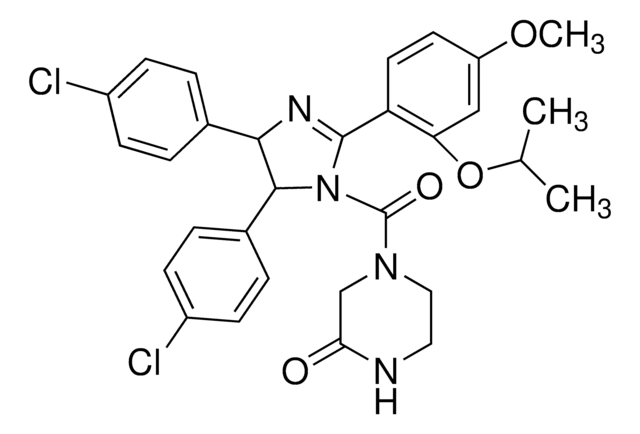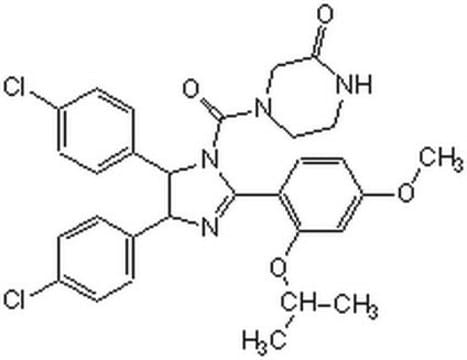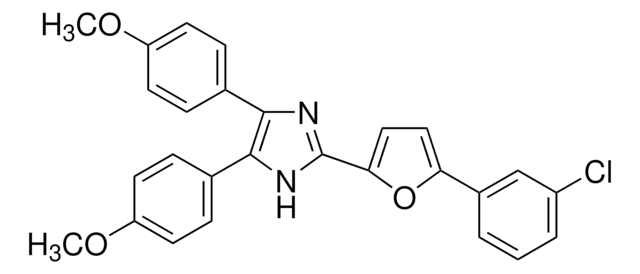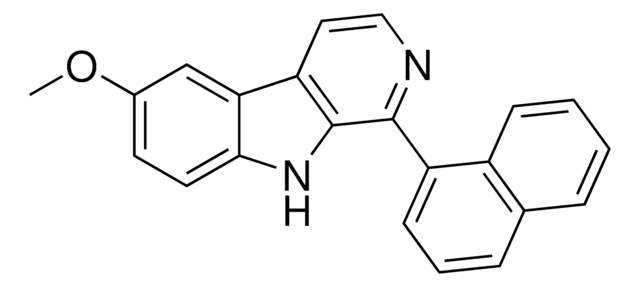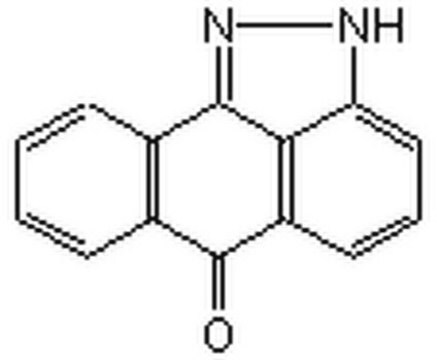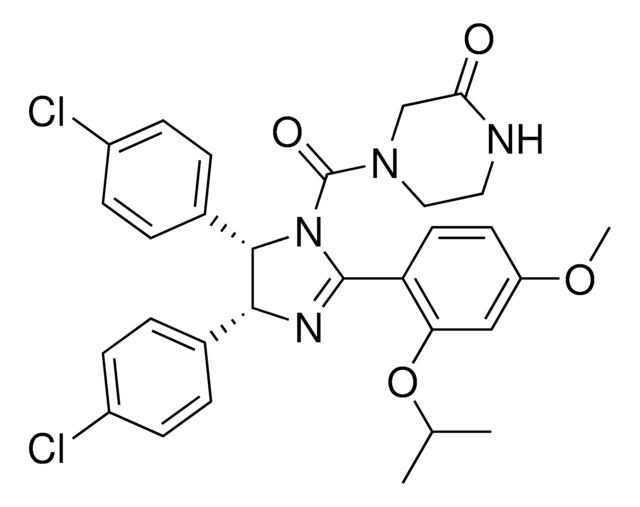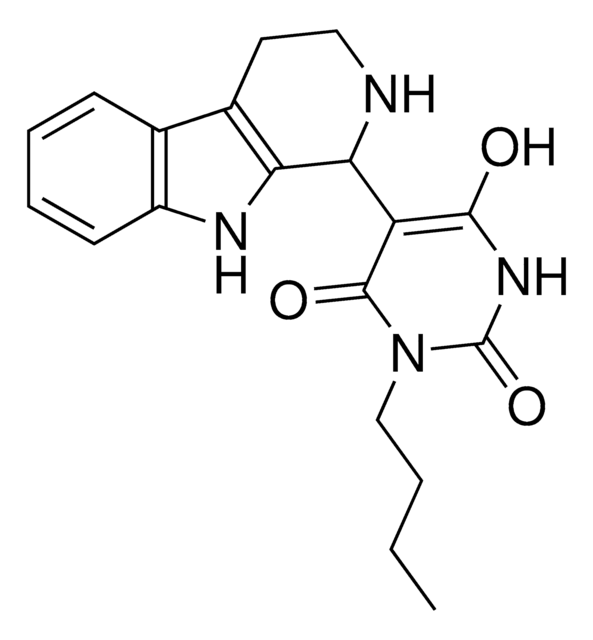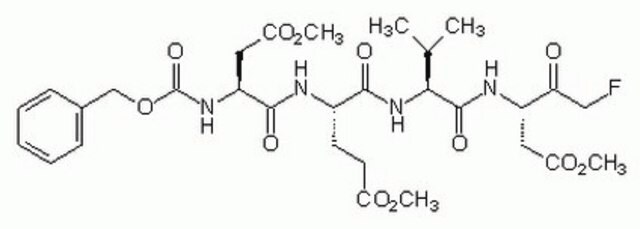444143
MDM2 Antagonist, Nutlin-3, Racemic
The MDM2 Antagonist, Nutlin-3, Racemic, also referenced under CAS 548472-68-0, controls the biological activity of MDM2. This small molecule/inhibitor is primarily used for Cancer applications.
Sinonimo/i:
MDM2 Antagonist, Nutlin-3, Racemic, MDM2 Inhibitor IV
About This Item
Prodotti consigliati
Livello qualitativo
Saggio
≥98% (TLC and HPLC)
Forma fisica
solid
Produttore/marchio commerciale
Calbiochem®
Condizioni di stoccaggio
OK to freeze
protect from light
Solubilità
DMSO: 25 mg/mL
ethanol: 25 mg/mL
Condizioni di spedizione
wet ice
Temperatura di conservazione
−20°C
InChI
1S/C30H30Cl2N4O4/c1-18(2)40-25-16-23(39-3)12-13-24(25)29-34-27(19-4-8-21(31)9-5-19)28(20-6-10-22(32)11-7-20)36(29)30(38)35-15-14-33-26(37)17-35/h4-13,16,18,27-28H,14-15,17H2,1-3H3,(H,33,37)
BDUHCSBCVGXTJM-UHFFFAOYSA-N
Descrizione generale
Azioni biochim/fisiol
MDM2
Confezionamento
Attenzione
Ricostituzione
Altre note
Vassilev, L.T., et al. 2004. Science303, 844.
Note legali
Codice della classe di stoccaggio
11 - Combustible Solids
Classe di pericolosità dell'acqua (WGK)
WGK 3
Punto d’infiammabilità (°F)
Not applicable
Punto d’infiammabilità (°C)
Not applicable
Certificati d'analisi (COA)
Cerca il Certificati d'analisi (COA) digitando il numero di lotto/batch corrispondente. I numeri di lotto o di batch sono stampati sull'etichetta dei prodotti dopo la parola ‘Lotto’ o ‘Batch’.
Possiedi già questo prodotto?
I documenti relativi ai prodotti acquistati recentemente sono disponibili nell’Archivio dei documenti.
Il team dei nostri ricercatori vanta grande esperienza in tutte le aree della ricerca quali Life Science, scienza dei materiali, sintesi chimica, cromatografia, discipline analitiche, ecc..
Contatta l'Assistenza Tecnica.